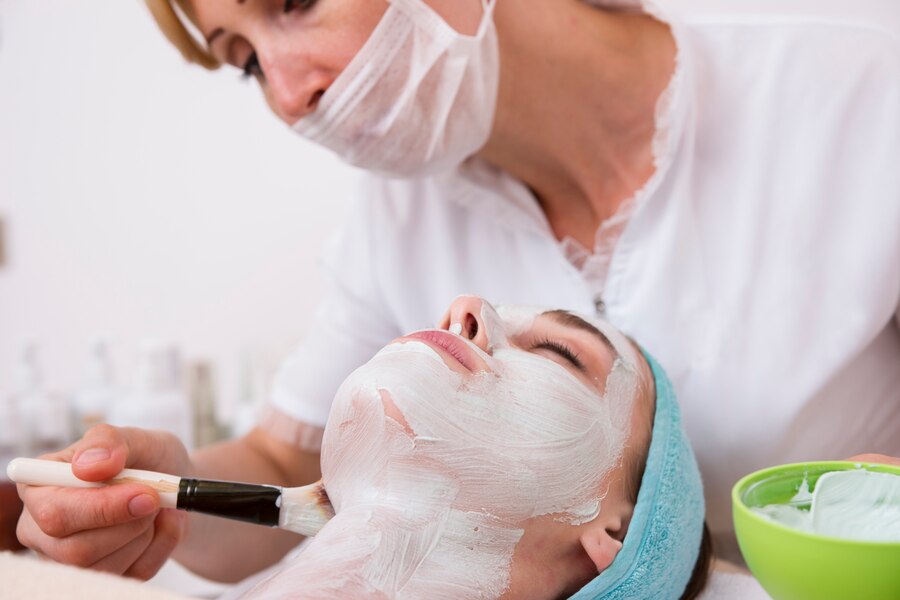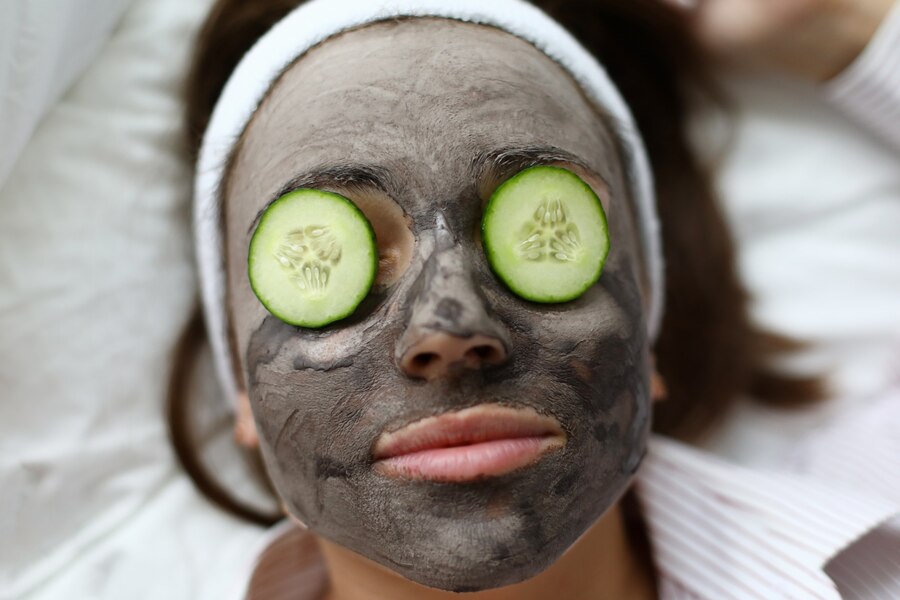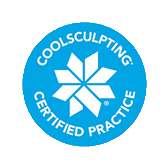Facials for Acne-Prone Skin: Tips for Clearer Complexion

Facials for Acne-Prone Skin: Tips for Clearer Complexion
Struggling with acne can be a frustrating journey, but there’s hope for achieving clearer, healthier skin. In the realm of skincare, facials are often hailed as a beacon of rejuvenation, offering targeted solutions for various skin concerns. For those grappling with acne-prone skin, the right facial can be a game-changer. In this comprehensive guide, we’ll delve into the world of facials tailored specifically for acne-prone skin. From expert tips to tried-and-tested techniques, embark on a journey to uncover the secrets to a clearer, more radiant complexion.
Understanding Acne: The Basics
Acne is a common skin condition that occurs when hair follicles become clogged with oil and dead skin cells. This often leads to the formation of pimples, blackheads, and whiteheads. Understanding the basics of acne involves grasping its underlying causes, which can range from hormonal changes and genetics to lifestyle factors like diet and stress. Moreover, recognizing the different types of acne, such as inflammatory and non-inflammatory, is crucial for effective treatment. By understanding the fundamentals of acne, individuals can better navigate the plethora of skincare options available and make informed decisions regarding their skincare routines.
The Impact of Facials on Acne
Facials can have a significant impact on acne-prone skin by targeting various factors contributing to breakouts. Through deep cleansing, exfoliation, and extraction, facials help unclog pores, remove excess oil, and eliminate acne-causing bacteria. Additionally, certain facial treatments incorporate ingredients like salicylic acid, benzoyl peroxide, and retinoids, which are known for their acne-fighting properties. Regular facials can also improve skin texture, reduce inflammation, and promote cell turnover, all of which contribute to a clearer complexion. However, the efficacy of facials may vary depending on the individual’s skin type, severity of acne, and adherence to post-facial care routines.
Types of Facials for Acne-Prone Skin
Facials for acne-prone skin come in various forms, each targeting specific concerns and catering to different skin types. One common type is the deep-cleansing facial, which focuses on removing impurities and excess oil from the skin’s surface. Chemical peels, another popular option, utilize exfoliating agents like glycolic acid or salicylic acid to unclog pores and promote skin renewal. LED light therapy facials harness the power of specific wavelengths of light to kill acne-causing bacteria and reduce inflammation. Additionally, there are specialized facials designed for sensitive or rosacea-prone skin, which aim to soothe irritation and minimize redness. Understanding the different types of facials available allows individuals to choose the most suitable option based on their skin concerns and preferences.
Ingredients to Look for in Acne-Fighting Facials
When seeking facials for acne-prone skin, it’s essential to pay attention to the ingredients used in the products and treatments. Certain ingredients have been scientifically proven to effectively combat acne and promote clearer skin. Salicylic acid, a beta hydroxy acid (BHA), is renowned for its ability to penetrate deep into pores, dissolve oil, and exfoliate dead skin cells, making it an excellent choice for acne treatment.
Benzoyl peroxide is another potent ingredient that kills acne-causing bacteria and reduces inflammation, although it can be drying for some individuals. Retinoids, derived from vitamin A, are known for their exfoliating and anti-inflammatory properties, making them effective in treating both acne and acne scars. Additionally, natural ingredients like tea tree oil, witch hazel, and niacinamide have antibacterial and anti-inflammatory properties that can help alleviate acne symptoms. By understanding the role of these ingredients, individuals can make informed decisions when selecting acne-fighting facials and skincare products.
Customized Solutions for Your Skin Concerns
No two individuals have the same skin, which is why customized solutions are essential for effectively managing acne-prone skin. Whether you’re dealing with hormonal acne, cystic acne, or occasional breakouts, a personalized approach tailored to your specific skin concerns is crucial for achieving optimal results.
This may involve consulting with a skincare professional or dermatologist to assess your skin type, identify underlying causes of acne, and determine the most suitable treatment plan. Customized facials can address a range of concerns, from acne and excess oil to uneven texture and hyperpigmentation, using targeted ingredients and techniques. By embracing personalized skincare solutions, individuals can take proactive steps towards achieving clearer, healthier skin and boosting their confidence.
Professional vs. At-Home Facials: Pros and Cons
When it comes to facials for acne-prone skin, individuals have the option of seeking professional treatments at a spa or dermatologist’s office or performing at-home facials themselves. Each approach comes with its own set of pros and cons. Professional facials are typically performed by trained estheticians or dermatologists who can customize treatments to suit individual skin concerns and provide expert guidance throughout the process. Moreover, professional facials often incorporate advanced techniques and equipment, such as steamers, extractions, and high-frequency devices, which may yield more significant results compared to at-home treatments.
However, professional facials can be costly and time-consuming, requiring regular appointments to maintain results. On the other hand, at-home facials offer convenience and flexibility, allowing individuals to perform treatments at their own pace and within the comfort of their homes. While at-home facials may not be as intensive or effective as professional treatments, they can still provide skincare benefits when done correctly. Ultimately, the choice between professional and at-home facials depends on individual preferences, budget, and skincare goals.
Preparing Your Skin for a Facial
Preparing your skin before a facial is essential for maximizing the efficacy of the treatment and minimizing the risk of adverse reactions. Start by cleansing your skin thoroughly to remove any makeup, dirt, and excess oil. Avoid using harsh exfoliants or active ingredients like retinoids in the days leading up to your facial, as they can increase skin sensitivity and irritation.
Additionally, inform your esthetician or dermatologist about any skincare products you’re currently using, as certain ingredients may interact with the facial treatment. It’s also crucial to disclose any allergies, sensitivities, or medical conditions that may affect your skin’s response to the facial. Finally, stay hydrated and get plenty of rest leading up to your appointment to ensure your skin is in optimal condition for treatment. By taking these steps to prepare your skin, you can help ensure a safe, effective, and enjoyable facial experience.
What to Expect During Your Facial Session
Embarking on a facial session for acne-prone skin can be an exciting yet daunting experience, especially if it’s your first time. Knowing what to expect can help alleviate any apprehension and ensure a smooth and enjoyable treatment. Typically, a facial session begins with a consultation with your esthetician or dermatologist to discuss your skin concerns, goals, and any specific issues you’d like to address.
They may then perform a skin analysis to assess your skin type, condition, and areas of concern. The facial itself typically involves several steps, including cleansing, exfoliation, extractions (if necessary), mask application, and moisturization. Depending on the type of facial and your skin’s needs, additional treatments like chemical peels, LED light therapy, or high-frequency treatments may be incorporated. Throughout the session, your esthetician or dermatologist will guide you through each step, explaining the purpose of the treatment and addressing any questions or concerns you may have. By knowing what to expect during your facial session, you can relax and fully enjoy the rejuvenating experience.
Post-Facial Care: Maintaining Results
After your facial session, proper post-facial care is crucial for maintaining the results and ensuring your skin remains healthy and radiant. Your esthetician or dermatologist will provide specific instructions tailored to your skin type and the treatments performed during the facial. This may include avoiding direct sunlight, applying soothing moisturizers or serums, and avoiding harsh or abrasive skincare products for a few days. It’s essential to follow these instructions diligently to minimize the risk of irritation, inflammation, or adverse reactions.
Additionally, staying hydrated, eating a balanced diet, and getting adequate sleep can support your skin’s recovery and enhance the benefits of the facial. Regular follow-up appointments can also help maintain the results of your facial treatments and address any emerging skin concerns. By practicing proper post-facial care, you can prolong the effects of your facial and enjoy clearer, healthier skin in the long term.
Addressing Acne Scars with Facials
Acne scars are a common concern for many individuals with acne-prone skin, often serving as a reminder of past breakouts and leaving behind uneven texture and pigmentation. Fortunately, facials can help address acne scars and improve overall skin texture through targeted treatments and techniques. Chemical peels, for example, work by exfoliating the outer layer of skin, stimulating collagen production, and promoting cell turnover, which can help reduce the appearance of acne scars over time. Microdermabrasion is another popular option that uses a diamond-tipped wand to gently exfoliate the skin and improve its texture and tone.
Additionally, microneedling facials involve creating tiny punctures in the skin’s surface to stimulate collagen production and enhance skin regeneration, leading to smoother, more even-looking skin. While facials can be effective in treating mild to moderate acne scars, more severe scarring may require additional treatments like laser therapy or dermal fillers.
Achieving clearer, healthier skin is within your reach with the right knowledge and guidance. At American Laser Med Spa, we’re dedicated to transforming lives by helping you feel young, beautiful, and confident. Our goal is to build a community where everyone feels valued and supported on their skincare journey. Nothing is more important to us than providing exceptional patient care and ensuring you have the best experience possible. To schedule your personalized facial for acne-prone skin and take the first step towards a radiant complexion, contact us at 915-760-5123.







